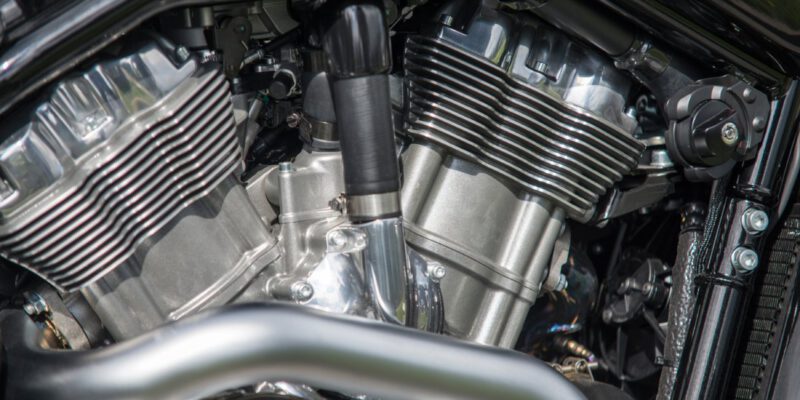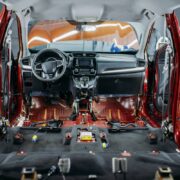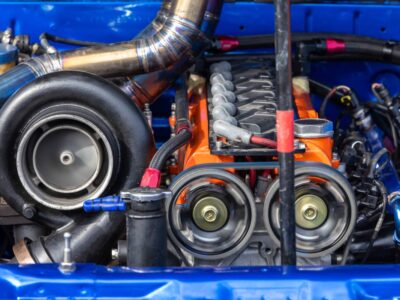The debate over whether a 4-cylinder bike is faster than a 2- or 3-cylinder bike has been ongoing for many years. While there are certainly some advantages to each type of engine, the reality is that there is no clear winner in this debate.
Instead, the choice of engine type depends on a number of different factors, including the intended use of the motorcycle, the rider’s personal preferences, and the specific design of the engine itself.
The Pros & Cons of a 4-Cylinder Engine Bike
One of the main advantages of a 4-cylinder engine is its ability to produce more power and torque. This is because a larger engine has more space to burn fuel and air, resulting in a more powerful combustion process. As a result, a 4-cylinder bike may be able to accelerate more quickly and reach higher top speeds than a smaller engine. This can be particularly beneficial for riders who prefer to ride long distances or on highways where higher speeds are necessary.

One of the main features that we can determine if how many cylinders each bikes have is to observe the exshaust cylinders behind front wheel and infront of the engine, if it has 4 like this, then this bike is a 4-cylinder bike
However, there are also some downsides to having a 4-cylinder engine. One of the main drawbacks is that a larger engine typically weighs more than a smaller engine. This can make the motorcycle feel heavier and less agile, making it more difficult to maneuver through traffic or tight spaces. In addition, a 4-cylinder engine may be more complex and expensive to produce than a smaller engine, which can make the motorcycle more expensive to purchase and maintain. This can be particularly concerning for riders who are on a tight budget or who prefer to perform their own maintenance on their motorcycles.
The Pros & Cons of a 2/3-Cylinder Engine Bike
On the other hand, a 2- or 3-cylinder engine may be more suitable for certain types of riding. For example, a smaller engine may be more agile and easier to handle, which can be beneficial for riders who prefer to ride in tight spaces or navigate through traffic. In addition, a smaller engine may be more fuel-efficient than a larger engine, which can help to save money on gas over time.

Another advantage of a smaller engine is its ability to rev higher and produce more power at high rpm. This is because a smaller engine typically has less mass to move around, which allows it to accelerate more quickly and reach higher speeds more easily. As a result, a 2- or 3-cylinder bike may be better suited for riders who prefer to ride aggressively or participate in track days.
Which engine is faster and better, 2/3 cylinder engine or 4-cylinder engine?
Of course, the choice of engine type ultimately depends on a number of different factors, including the rider’s personal preferences, the intended use of the motorcycle, and the specific design of the engine itself. For example, a 4-cylinder engine may be better suited for long-distance touring or highway riding, while a 2- or 3-cylinder engine may be more suitable for city riding or off-road adventures and camping.
In addition, the specific design of the engine can also play a role in its performance. For example, a high-performance 2-cylinder engine may be able to produce more power and torque than a lower-performance 4-cylinder engine, despite its smaller size. Similarly, a well-designed 4-cylinder engine may be more fuel-efficient and easier to handle than a poorly designed 2- or 3-cylinder engine.

In recent years, motorcycle manufacturers have started to produce bikes with smaller engines that are still able to produce impressive power and torque output. These engines often utilise advanced technologies such as turbocharging or supercharging to boost performance while still maintaining a small size and lightweight design.
Or even no gas engine at all that would end the conversation about cylinders figure, and we are talk about the electric bike. Electric motorcycles are becoming increasingly popular as an alternative to gas-powered bikes. While electric bikes may not have the same level of power and range as gas-powered bikes, they offer a number of advantages, including quiet operation, low maintenance requirements, and zero emissions. Electric bikes also provide instant torque and smooth acceleration, making them well-suited for city riding and commuting. With advancements in battery technology and charging infrastructure, electric motorcycles are quickly becoming a viable option for riders looking for a sustainable and efficient mode of transportation.
Ultimately, the choice of engine type is a matter of personal preference, and there is no clear winner in the debate between 4-cylinder, 2-cylinder, and 3-cylinder engines. Each type of engine has its own unique advantages and disadvantages, and the best choice for a given rider will depend on a number of different factors. Whether you prefer the power and torque of a 4-cylinder engine or the agility and efficiency of a smaller engine, there is sure to be a motorcycle out there that meets your needs and preferences.









